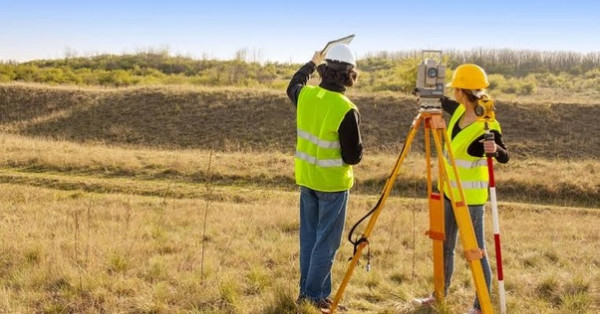The Role of Registered Surveyor: Ensuring Accuracy and Legal Compliance

A registered surveyor can play an essential part in land development as well as real estate transactions and management of property boundaries. They are trained professionals who have the expertise to measure, map, and define boundaries accurately while adhering to legal and regulatory standards. You will discover the significance of land surveyors in this post. You will also discover their responsibilities as well as the important role they have in maintaining order and clarity in land matters.
The Role of Registered Surveyors
- Property Border Determination: One primary duty of a licensed surveyor includes determining property boundaries. These surveyors utilize advanced surveying tools and techniques to accurately mark and measure the corners and boundaries on a property. It is important for government agencies, property owners, and developers that they have this information in order to verify ownership and adhere to zoning regulations.
- Subdivision and Development in Land: Registered surveys are often involved with land subdivisions. They can determine whether a land parcel or lot is feasible to subdivide and ensure compliance with the local zoning law. Surveyors draw up subdivision plans to help with the development of a property and ensure compliance with local laws.
- Construction Surveys: During construction, the registered surveyor can play a crucial role in ensuring buildings and structures have been built at the correct location according to approved plans. They provide builders with accurate measurements and reference points in order to ensure the construction conforms to property boundaries and regulations.
- Topographic Surveys: Registered surveys also conduct topographic studies to map the artificial and natural features of an area. These surveys can be used to design infrastructure projects like roads, utilities, or drainage systems. Engineers and architects use topographic data to create accurate plans.
Professional Qualifications:What Are They?
For a surveyor to be registered, they must meet strict professional standards. In many countries, such as the United States, a registered surveyor must first obtain a certification or license from an official state or national surveying body. The typical process includes the steps below:
- Educational Requirements: Prospective chartered surveyors should have at least a bachelor's in surveying. The educational foundation they have received will equip them with all the skills and knowledge required to be successful in the field.
- Professional Experience: After receiving a degree, people who are interested in becoming registered surveyors will need to gain a specified number of years working as a professional under the guidance of licensed surveyors. It is important to gain practical experience in order to develop expertise in surveying technology and techniques.
- Examination for Licensing: To be registered as a surveyor, applicants must pass a licensing exam administered to them by the relevant licensing authority. The exam is designed to assess their knowledge about surveying, laws, and regulations.
- Continuing Ed: Once registered, registered surveyors may be required to attend continuing education to remain current on the most recent technologies, methods, regulations, and standards.
Conclusion
Registered surveyors can be invaluable professionals in the fields of real estate development, property management, and land development. Their expertise ensures the accurate definition of property boundaries, smooth progress in land development, and legal compliance. Suppose you're buying or renting property, starting a construction or boundary dispute, or embarking on any other land-related project. In that case, the services provided by a registered surveyor will be of great value to protect your interests. Their precision and commitment to professional standards make land surveyors essential contributors.
